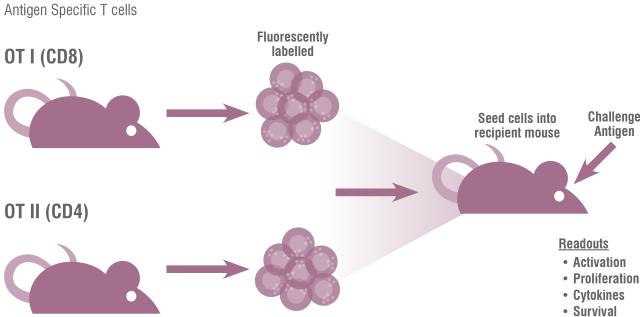
It is used as adjuvant therapy after surgery. The pretense of this design is that TILs may be relatively tumor-specific and will thus mount a localized tumoricidal response upon return as an activated population.

Adoptive cell therapy ACT is a highly personalized cancer therapy that involves administration to the cancer-bearing host of immune cells with direct anticancer activity.
What is adoptive transfer. Adoptive transfer is an approach based on harvesting tumor-invading lymphocytes TILs expansion ex vivo activation by IL-2 stimulation and subsequent re-implantation. The pretense of this design is that TILs may be relatively tumor-specific and will thus mount a localized tumoricidal response upon return as an activated population. A form of passive immunisation in which sensitised cells or serum are transferred to an immunologically naive or lymphocyte-depleted recipienteg for managing cancer as in the use of IL-2LAK cells.
About 10 of patients with terminal renal cell carcinoma and melanoma achieve partial or complete remission with LAKIL-2. Some response to LAK cells may. Adoptive cell transfer therapy is an immunotherapy that modifies a patients own immune cells to fight melanoma.
It is used as adjuvant therapy after surgery. Adoptive cell transfer is the transfer of immune cells into the body after it has been augmented to be possess more effective anti-pathology features. In most cases a patients own cells will be used to limit autoimmunity and rejection.
Cancer immunotherapy commonly uses this form of. Beckman Coulter Life Sciences defines adoptive cell transfer and discusses commonly used forms and whats related. Beckman Coulter Life Sciences is taking actions in the best interests of our associates customers and business partners as we navigate the growing threats of the 2019 Novel Coronavirus disease COVID-19.
The field of adoptive cell transfer ACT is currently comprised of chimeric antigen receptor CAR- and T-cell receptor TCR-engineered T cells and has emerged from principles of basic immunology to paradigm-shifting clinical immunotherapy for cancer. Adoptive transfer of M2 macrophages promotes locomotor recovery in adult rats after spinal cord injury Brain Behav Immun. Epub 2014 Dec 2.
Authors Shan-Feng Ma 1. 12 rows The adoptive transfer EAE model in C57BL6 mice is recommended for study of compound. Sepsis a condition caused by severe infections affects more than 30 million people worldwide every.
Adoptive Immunity The transfer of immunity from an immune competent organism to another nonimmune organism by either injecting immune-competent cells as in white cell transfusions or by transfer of immunoglobulins as occurs in passive immunity seen in neonates through transplacental transfer of IgG. Intended to be a temporary transfer of parental authority and it does not terminate the legal relationship between the parents and the child. Recent stories in the media tell of UCT situations involving adopted children who were placed in homes in which they were severely abused neglected or subjected to multiple subsequent moves.
T-cell transfer therapy is also called adoptive cell therapy adoptive immunotherapy and immune cell therapy. The process of growing your T cells in the lab can take 2 to 8 weeks. During this time you may have treatment with chemotherapy and maybe radiation therapy to get rid of other immune cells.
Adoptive immunotherapy involves the ex. Vivo activation and expansion of T cells or NK cells and passive transfer of these cells into the cancer patient. This is an experimental approach with some risks and needs to be explored more intensively.
Cells for adoptive therapy can be obtained either from the patient or from a separate individual. Adoptive cell therapy ACT is a highly personalized cancer therapy that involves administration to the cancer-bearing host of immune cells with direct anticancer activity. ACT using naturally occurring tumor-reactive lymphocytes has mediated durable complete regressions in patients with melanoma probably by targeting somatic mutations exclusive to each cancer.
Adoptive cell therapy also known as cellular immunotherapy is a form of treatment that uses the cells of our immune system to eliminate cancer. Some of these approaches involve directly isolating our own immune cells and simply expanding their numbers whereas others involve genetically engineering our immune cells via gene therapy to enhance their cancer-fighting capabilities. Adoptive immunity acts in a host after their immunological components are withdrawn their immunological activity is modified extracorporeally and then reinfused into the same host.
This process in its former part is analogous to adoption. A child is once adopted out from their home grown up and then returned to their home of birth. Adoptive transfer of tumor antigen vaccine-primed and costimulated T cells leads to augmented and accelerated cellular and humoral immune reconstitution including anti-tumor immunity after autologous stem cell transplantation for myeloma.